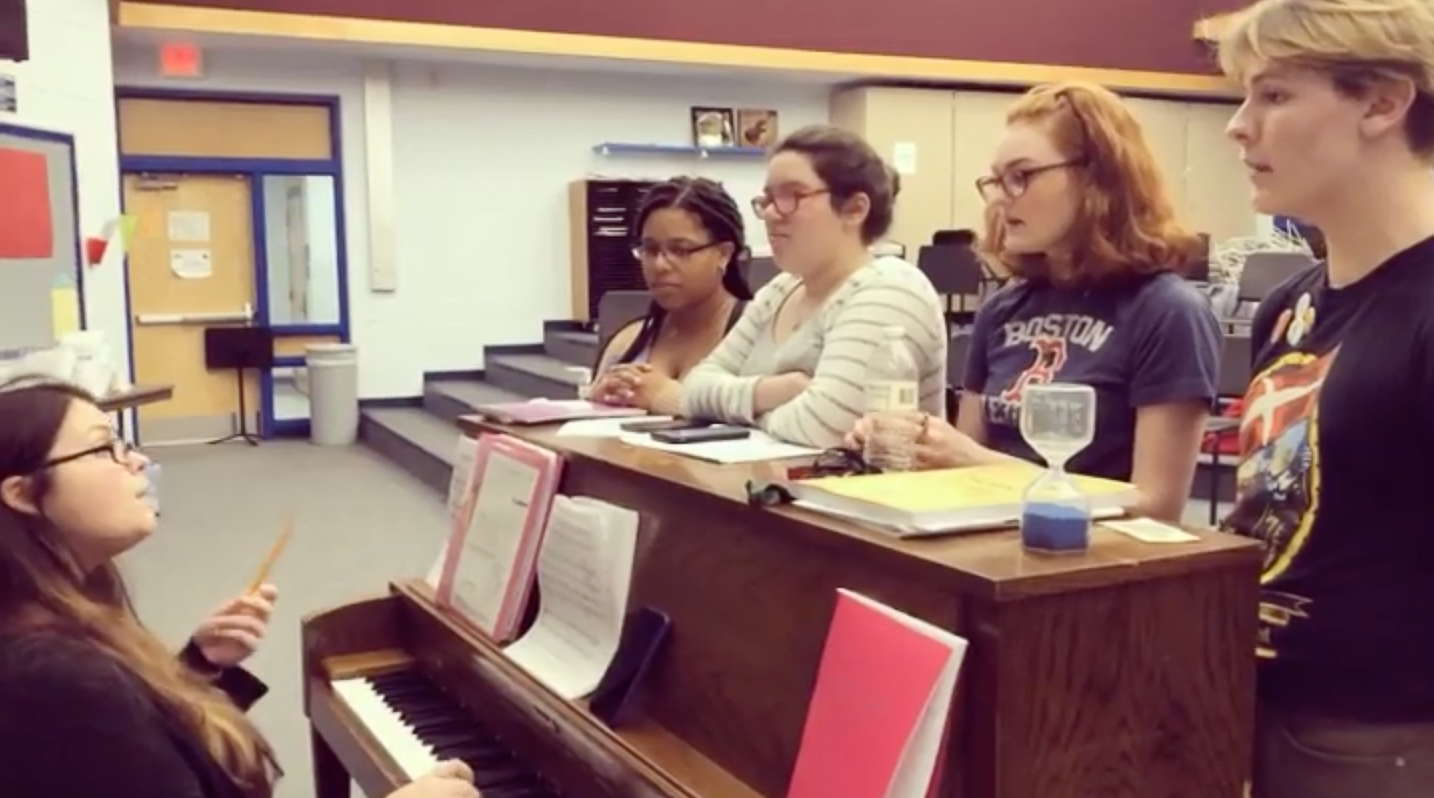Pictured Above: Sara Skinner, a music education senior at USF Tampa, teaches students at Armwood High School in Hillborough County.
Courtesy of Sara Skinner
By Annalise Anderson
At the start of the fall semester, students faced uncertainties in landing internship and field study opportunities required for graduation.
Several majors at USF require students to obtain a certain number of hours working in the field. COVID-19 has made it especially challenging for students, faculty and staff in finding appropriate field study placements.
USF administration and related institutions that have established a relationship with the college to regularly host interning students have taken precautionary measures to maintain safe operations.
While some students have been fortunate enough to secure in-person experiences, many are now fulfilling their required hours online.
According to Heather Duncan, interim assistant dean and director of teacher education and clinical experience at USF St. Petersburg, all College of Education students requiring field study have been placed in classrooms – virtual and in-person.
Duncan said that the fall semester has gone “more smoothly than the spring.”
The College of Education has worked to accommodate its students and has modified its assignments “to reflect this new way of work.”
“It’s been a really great learning experience for (students) because it provides them a new and unique and dynamic set of skills that otherwise they would not have been able to acquire in a traditional internship placement,” Duncan said. “…They can use those (skills) in the future because this very well could be our new way of work for the foreseeable future.”
Vanessa Marasco, coordinator of clinical education at USF Sarasota-Manatee, expects all of her students “will remain on track for graduation.”
“Additionally, many of the students in their final internship have already been offered jobs upon degree completion,” Marasco said in an email to The Crow’s Nest.
Amanda Sabean, an elementary education senior at USF Tampa, worries that the present situation inhibits her and her colleagues from establishing relationships with their students.
“While I am still able to complete my internship for the semester, COVID-19 has presented some new challenges,” Sabean said in an email to The Crow’s Nest. “A huge part of elementary education is building a sense of community and forming relationships with the students (and letting them form relationships with one another). It’s incredibly difficult to do this when students are supposed to remain as far apart as the classroom will allow.
“In short, we’re all facing a huge learning curve and new classroom management difficulties, whether we’re interns or veteran teachers, and it’s just really difficult to figure out how to support all of our students right now.”
Sara Skinner, a music education senior at USF Tampa, has experienced similar hurdles.
“The way that elementary students must interact with one another and the ways in which an ensemble rehearsal looks are significantly different from how they used to before the spring,” Skinner said in an email to The Crow’s Nest. “At times it is overwhelming navigating the classrooms, but it is also serving as a great way to integrate technology and even more creativity into the classroom.
“I am incredibly grateful to have been a part of a music degree program that focused on progressive teaching methods and technological integration because our current situation would be ten times harder without it. “
Victor Fung, a professor of music education and director of the Center for Music Education Research, is grateful to partnering school districts for helping to place his students.
“In the music education program, we are extremely fortunate that everyone who needs an internship gets an internship placement,” Fung said in an email to The Crow’s Nest.
“Thanks to the school districts with which we work. They totally understand our needs, and they are extremely courteous to us and our interns.”



